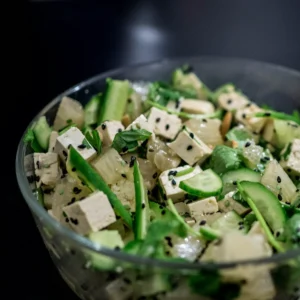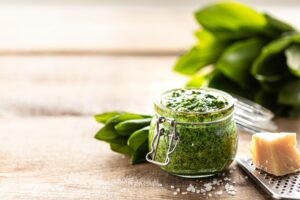E270 is a food additive meant to preserve foods and prevent oxidation. While it’s generally sourced from Corn and other starches it technically can be produced from dairy products.
Table of Contents
While E270 can be produced from dairy products, almost universally it’s produced through fermenting starches such as Corn or potatoes, as it’s significantly cheaper to do so. As a result E270 is almost always vegan, with the exception of dairy products that contain it which often are from dairy sources, as well as apparently some other various products that have E270, such as chips.
There’s no real way to tell if the E270 is vegan or not in the product you have other than looking for “vegan” labeling on it or searching if the product is vegan online…well other than contacting the company and waiting for a reply.
So What is E270?
E270 is a standardized multi-lingual way of referring to Lactic Acid, which is an acid that naturally occurs when you ferment foods. It’s added to products to make sure they don’t go bad as quickly, be it through oxidation or simply becoming stale, it helps a little with all of those types of issues a packaged food might go through.
So is E270 Vegan?
If you live in a western country it’s a resounding YES if it’s in a non-dairy product as it’s significantly cheaper to use Vegan E270 and the supply-chains to get it are widespread. On the other hand, if you’re in certain developing countries such as India, Nepal, or certain regions in Africa, it’s a toss-up on whether or not it’ll be vegan. Generally it will still be vegan, however there’s a decent (10-20%) chance it won’t be.
If you are in one of the developing countries or want to ensure without a doubt that it’s vegan I’d recommend contacting the manufacturer or searching the product online and see if someone’s declaring that specific product to be vegan.






